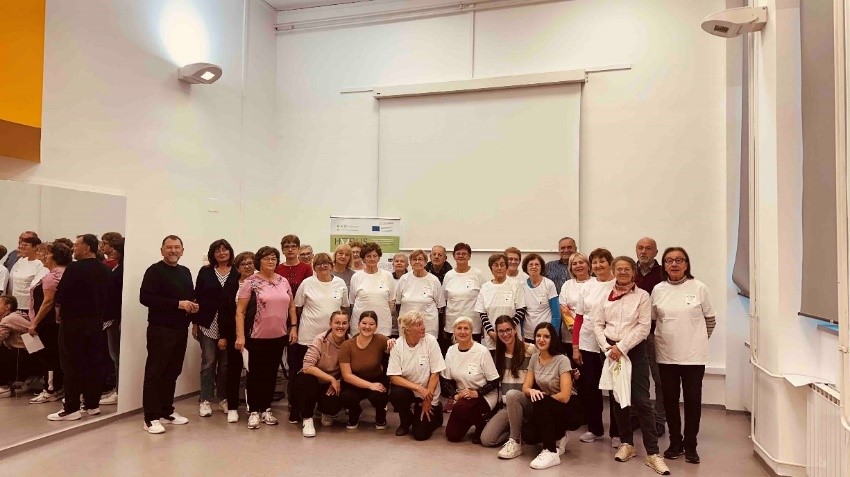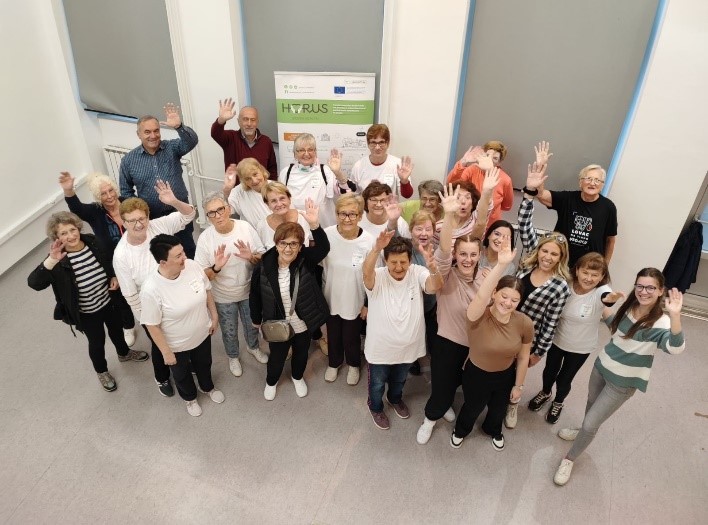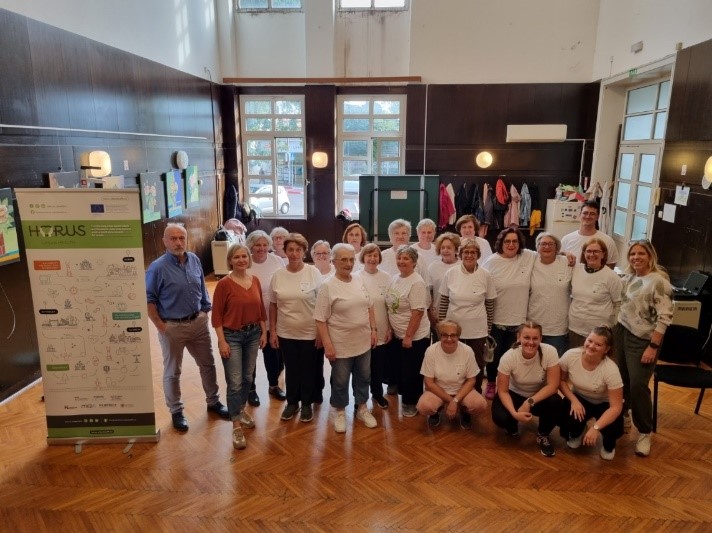In mid-October, recruitment started in the HORUS pilot in the city of Rijeka, Croatia.
In order to disseminate the current project activities, as well as to recruit potential participants for the upcoming focus groups and interviews, the MEDRI team organised (4 groups) anthropometric measurements for older adults. These measurements are part of the public health actions that MEDRI organises every academic year.
The measurements were organised in two locations: Faculty of Health Studies, University of Rijeka (14 October 2024) and in the Local Board in Kozala (16 October 2024).
MEDRI team leaders:
- Prof. Vanja Vasiljev, MPH, PhD
- Professor Tomislav Rukavina, M.D.
- Associate Professor Lovorka Bilajac, MPH, PhD
- Denis Juraga, M.EPH, PhD
- Professor Zlatko Trobonjača, M.D.
The following letter of invitation was given to the participants:
Invitation to participate in a European research project
“Health Outcomes from Raised Urban Settings, acronym HORUS“
We invite you to participate in a scientific study in which the link between the characteristics of the urban environment and the prevalence of risk behaviors responsible for the development of chronic non-communicable diseases (NCDs) will be analyzed and investigated. The focus will be on existing urban solutions that change the physical, social and functional characteristics of the environment and thereby significantly affect the occurrence of risk behaviors and, ultimately, the outcomes of NCDs. Also, interventions will be developed and implemented in three European countries – Spain, Croatia and the Netherlands. A total of 900 participants will be included in the research, of which the pilot city of Rijeka should include 300 participants, 150 participants in the control group and 150 participants in the intervention group.
The purpose of the interventions will be to change the lifestyle habits and patterns of the participants towards healthier lifestyles and consequently empower vulnerable population groups and provide support to citizens in using the urban environment.
Your role in the research:
In order to assess the impact of specific interventions that change the physical environment of urban areas on the NCDs and measure the connection between the characteristics of the urban environment and risk behavior for the development of the NCDs in the pilot city Rijeka, we will organize focus groups and interviews. Each focus group will consist of 8 to 10 participants from the area of the city of Rijeka. If you are willing to participate in focus groups and be part of a research project, please sign up for the signature list.
Sincerely,

On behalf of the MEDRI pilot Rijeka research team of the HORUS project, prof. Vanja Vasiljev, MPH, Ph.D
We share some of the photos from those events:





